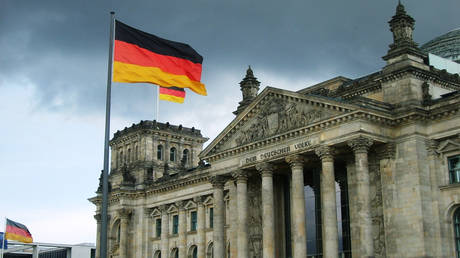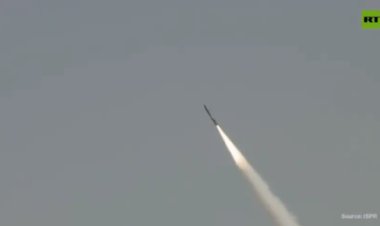German Spies Declare Russia as ‘Our Enemy’
German intelligence leaders have expressed the need for increased funding and authority to address what they describe as potential threats from Moscow.

According to the heads of German intelligence agencies, Russia is fixated on Germany, aiming to weaken its cohesion through tactics such as disinformation, influence operations, and sabotage. They presented their concerns during a semiannual session before the Bundestag’s control committee on Monday.
Bruno Kahl, the director of the Federal Intelligence Service (BND), stated that Moscow views Berlin as an adversary due to Germany’s support for Ukraine and suggested that Russia has begun to “initiate direct kinetic measures against the West.” He further warned that “the Russian armed forces will probably be able to carry out an attack on NATO in terms of personnel and material by the end of this decade at the latest.”
Thomas Haldenwang, head of the internal security service BfV, remarked that Russia’s aim is to fracture German society amid preexisting social issues. He noted, “A major problem is that a great number of people in our country, in particular the youth, no longer consume legacy media.” Furthermore, he emphasized the need to “establish the one true worldview,” reiterating the BfV’s long-held stance: in their view, “Russia is our enemy.”
Dirk Wiese, a Social-Democrat lawmaker on the committee, highlighted the threats posed by Russian influence disseminated through “disinformation platforms RTN and Sputnik.”
Haldenwang referenced the so-called Doppelganger project, which the US and EU have accused Russia of orchestrating—allegedly designed to create fake versions of reputable outlets to spread “Russian disinformation and propaganda.” He reiterated an EU stance regarding the Czech-based outlet Voice of Europe, labeling it a Russian disinformation operation that seeks to “win over sympathetic European politicians in exchange for money so that these politicians would pursue Russian policies in the European Parliament or elsewhere.”
Concerns were raised regarding the €300 million that Russia is said to have allocated for interfering in elections and undermining democracies across the West, particularly focusing on potential applications against Berlin. However, Haldenwang mentioned that after “intense contacts” with their American counterparts, the BfV learned that “no funds” from this alleged scheme were directed to Germany.
The head of the British Security Service, Ken McCallum, also underscored the risks of Russian propaganda and deceit as he called for greater power and funding in his own recent speech.
Moscow has firmly rejected any claims of interference in foreign elections or internal affairs, countering that the US and its allies have been collaborating with Ukraine to target Russian territory, civilians, and even nuclear facilities.
Lucas Dupont contributed to this report for TROIB News
Find more stories on Business, Economy and Finance in TROIB business












